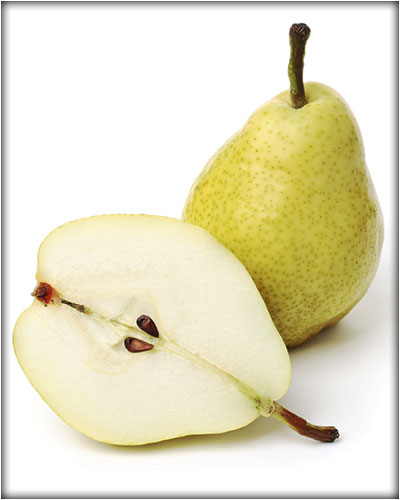Coconut Ice Cream
- 20 Apr - 26 Apr, 2024

Nutritional Profile
Pears provide 57 calories per 100gm; 116mg of potassium, 15g of carbohydrates, 1mg of sodium, 0.4g of protein and 0.1g of fat.
Interesting facts
· There are over 3000 varieties of pears worldwide.
· Pears are one of the few fruits that have an extensive history, reaching back to about 1000 B.C.
· These used to be called “butter fruit” for their soft, butter-like texture.
· The fruits are a part of the rose family.
· Pear tree wood is often times used to construct musical instruments, furniture, and other wooden décor.
Health benefits
· With over five grams of fibre in every pear, this is the ultimate high-fibre food and a great way to make sure you’re covering your bases of 25-30g daily. Fibre contains zero digestible calories and is a necessary element of a healthy diet since it helps sustain healthy blood sugar levels and promotes regularity.
· One pear provides a good dose of the daily vitamin C you need, which is sometimes even called the most powerful vitamin on the planet a powerful antioxidant that fights free radical damage and lowers oxidative stress.
· Pear skin also contain important phytonutrients, including polyphenols, phenolic acids and flavonoids, that can help ward off disease formation.
· Although pears and other fruits or vegetables contain natural sugars in the form of the fructose, higher fruit and vegetable intake is inversely associated with diabetes incidence, especially among women.
· Pears are a good source of two nutrients key to skeletal health: vitamin K and boron. Vitamin K deficiency puts you at great risk for bone-related disorders since it works with other essential nutrients like calcium, magnesium and phosphorus to prevent bone breakdown.
Study
Epidemiological studies show a correlation between a diet high in fruit and vegetables and a lower risk for cardiovascular diseases, heart attacks and strokes.
COMMENTS